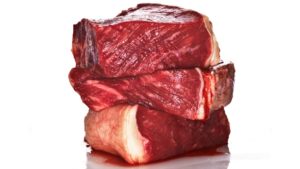
African-Americans should be particularly concerned about this, since around 300,000 Black people die every year from illnesses like high blood pressure, obesity and type 2 diabetes—all of these conditions are diet-related. While vegan and vegetarian diets have long been thought of in the Black community as eating plans for White middle and upper class people, more people of color are starting to embrace the concept of a plant-based diet, even if they are not completely meat-free.
In case you’re in a panic about this recent WHO news and want to know if you should make adjustments to your diet, here are a few things you need to know.
First, the notion that processed and red meats are carcinogens is a little misleading. Ed Yong from The Atlantic states that the classifications made by the WHO “are based on the strength of evident not degree of risk.” This means that processed meats are in Group 1 of established carcinogens because of the evidence that these foods can cause cancer, but not because of how “risky” it is to eat processed meats. So, while it’s probably not logical to compare meat consumption with other toxic carcinogens like plutonium, it’s still best to proceed with caution when it comes to including an abundance of processed meat in your diet.
Also, health officials and dieticians are not suggesting that everyone give up meat entirely. While this may be due to the fact that making such a recommendation could cause financial decline in the meat industry, it is possible that most meat lovers won’t have to give up their favorite foods to avoid cancer. Anahad O’Connor for The New York Times writes that “experts not involved in the report said that the findings should give people more reason to ‘moderate’ their intake of processed meat.” O’Connor also confirmed that the increased risk of cancer from processed meat is small.
It’s also important to note that the “carcinogen” label doesn’t necessarily apply to all types of meat. Only red meat and processed meat are included in the WHO’s announcement. Processed meat is classified as meat that “has been transformed through salting, curing, fermentation, smoking, or other processes to enhance flavor or improve preservation.” Chicken and fish were not included in this report.


